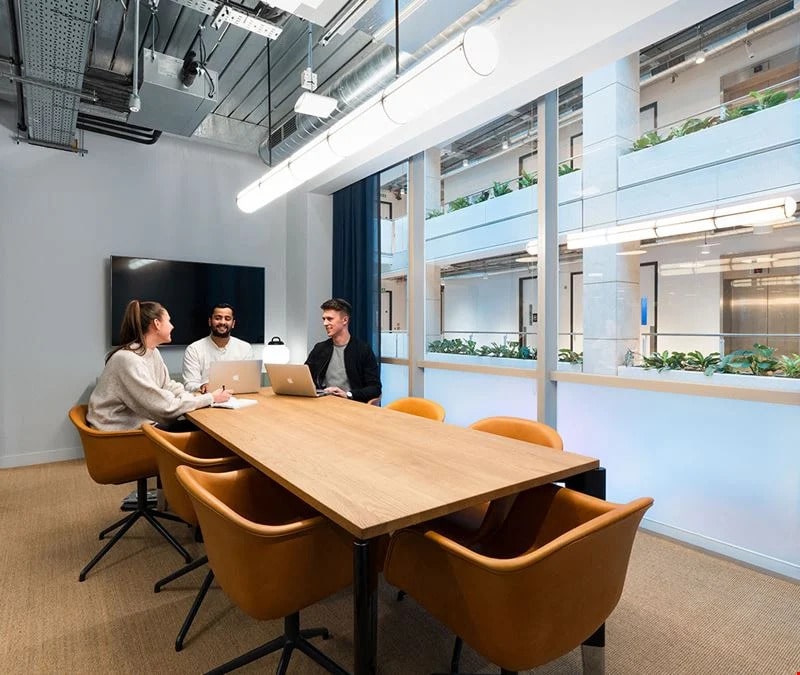Instant hosted a webinar for 35 leading flexible workspace operators to assess the impact of the COVID-19 pandemic. We've summarised the key outcomes below.
We wanted to look behind the headlines and find out the views of operators that have worked through previous downturns, and best practice on running businesses during a very difficult time.
Some interesting trends have started to emerge in the last couple of weeks. While demand for flexible workspace in the UK has dropped to roughly 20% of pre COVID-19 levels and does not look set to recover in the near future, many providers of flex space are remaining open, often with skeleton staff, until government policy advises differently.
Our understanding of the current market situation in the UK is that while rolling or ultra-short term contracts, often coworking focused, have been hit hard, the longer term larger contracts on the whole are holding up for now. We would estimate that, at present, about 15-25% of tenants are asking their flex space providers for some form of relief but this number could increase as the situation continues.
The major UK cities at present appear to be the hardest hit but are also likely to be some of the first to recover when the current lockdown ends and demand picks back up, something we are seeing the first signs of in Asia, even as we speak.
Instant’s revised global forecast points to supply growth dropping to single figures this year with up to 5% of current flex spaces not managing to weather the current market conditions, a somewhat bleak but realistic forecast. One factor that we have to take into account is that at least half of those spaces would have likely ceased trading without COVID-19 as there is a proportion of the industry, often on the smaller side, that have consistently struggled to remain profitable.
Many of the operators on the webinar agree that the coworking model of flex space will face a longer-term threat, as the stigma attached to working in close quarters may last for some time in a post-pandemic world. The move to lower density workplaces and those with private office space will continue for some time and those operators that exclusively offer this service will have to evolve their workspace product rapidly.

Operators agree that the property market will be keeping a close watch on the conduct of flexible workspace operators and, ultimately, the future prospects of the market. There will be scrutiny on how operators maintain client relationships and also their dialogue with landlords during a difficult time. There can be little doubt that the coming weeks and months will be a stern test of the robustness of the flex model and clients, investors and landlords alike, will all be watching with close interest.
For experienced operators, they all agree that honest and open conversations with landlords are integral to weathering the storm. The market conditions may well dictate that the leased model of occupancy (as opposed to freeholds or management agreements) may become difficult and future usage diminish in light of the current financial pressures.
Many of the operators are maintaining the close relationships with their clients that have helped them to grow their businesses and brands. This direct contact is helping to understand the dilemmas facing clients including businesses waiting for government support, which in turn will assist with paying fees on time. Clients are understandably feeling very vulnerable, but dialogue helps both operators and their customers to gauge the challenges they face. For example, in terms of rent reduction, many clients fail to appreciate the high cost of operation for flex space operators.
The general consensus from the industry is that those that manage to weather the storm are likely to be part of an even stronger and more in demand industry on the other side. While it’s still early days, conversations with larger companies continue. With even more interest expected as those with lease commitments that end in the next 9 months look even closer at how the flex industry can support their business to move forward faster in the future.
There is also the strong view that the regional market for flex space is set to grow in the coming year. The mass move to home-working that we have seen in recent weeks will ultimately translate to a preference towards shorter commute times and, therefore, a move away from workspace in the major cities. The “lockdown” has turbo-charged many future of work trends, and this includes giving workers more options to work closer to their homes – so, in due course, we will see more operators working to increase the regional supply of flex space.
For a time when the markets are being battered and we all face the uncertain future of business after the lockdown, the majority of our flexible workspace partners sound optimistic. There are short-term difficulties that have to be managed – and let’s make no mistake, it is an extremely challenging time – but there is a pervasive sense that the future for workspace will be more flexible.



